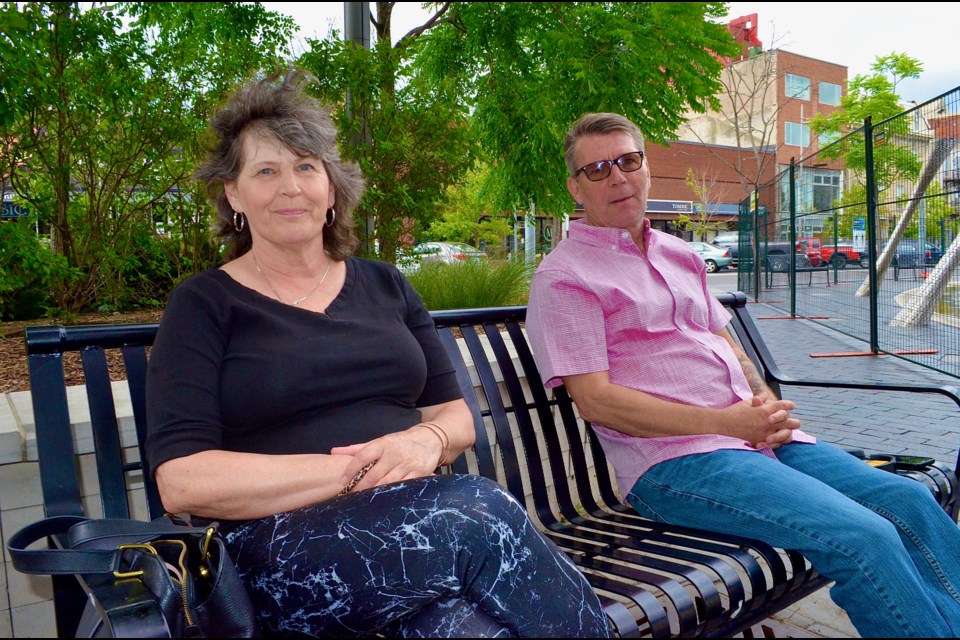Things might have been different for Chrysta Leigh Reid if she had felt comfortable to speak openly about her addiction. It was a missed opportunity her mother, Denese Renaud, lives with every day.
“I know she didn’t want to disappoint me,” said Renaud. “Although I would never walk away from her, she felt that, by saying something, I would have been super disappointed in her.”
The 43-year-old single mother didn’t fit the stereotypical image many, including Renaud, had of a drug addict. She had a good job with a medical company in Toronto and a nice home.
“She hid it so well even from the workers and doctors that she worked for,” said Renaud. “She never missed work so, she was functional.”
Reid was able to keep her addiction a secret, even from her 24-year-old daughter, until Oct 7 of last year when she was found dead in her home from an accidental overdose.
“I tell you that girl couldn’t match socks but, she tricked us all,” said Renaud. “When they went to my daughter’s house, she had a room full of prescription drugs and none of it belonged to her.”
The news hit Renaud with a wave of conflicting emotions including guilt, denial, anger, sadness and shame and left her with more questions than answers.
“It took me about three days before I could finally say what, exactly, happened to her,” said Renaud. “I was embarrassed. I was ashamed.”
Renaud’s experience illustrates how the stigma of addiction can live on with the family and loved ones of overdose victims. It makes it difficult to properly grieve their loss and celebrate the life of people they loved.
Recovering addict and activist Donny Hay knows all too well how the cycle and stigma of addiction can hurt both the addict and their families.
“The sad part is that the families are forgotten about when it happens,” said Hay. “All drug addicts are remembered for when they die, is where and how, and we can’t have that.”
Grieving loved ones often choose to suffer in silence rather than deal with the stigma but staying silent wasn’t an option for Renaud.
“Finally, I just blurted it out,” she said. “There you go. It made me feel better and as, the mom left behind, I was embarrassed, and we shouldn’t be embarrassed because we need to talk about it more.”
Renaud had been involved with the ASNOW Action Committee, started by Hay in 2018 to bring a medical detox centre to Guelph, but after her daughter’s death she gained a whole new perspective on the issue.
“I just felt like we needed a support group for people who have lost somebody,” said Renaud. “I thought we could also extend it to people that have recovered so, they can share their stories.”
Addicts and their families are also invited to share their stories and explore options for support and recovery.
“We hope it will give them the support they need or the encouragement they need to take the first step,” said Renaud. “We all know the first step is the longest stride. I encourage people to go and read it because the stigma is that people who use drugs are a certain calibre but each one of our stories is different – when it came to our loss it is different.”
Renaud monitors the site and removes negative and stigmatizing comments and content.
“I will not put up with any harsh remarks or anything like that on the site” said Renaud. “It’s non-judgemental. I want people to come and tell their stories where they won’t be stigmatized.”
She posted her own story to get the conversation started.
“It was really tough to write but after I was finished it, I was calm,” she said. “Not all drug addicts are the ones breaking into your car or robbing your business. Some of them actually have jobs and have done well in life but they just fell off, you know.”
Hay has shared his story of addiction and recovery as well as the story of his wife who developed a terminal heart condition after overdosing on prescription pain medication.
“Amy wants to help with A.D.A.M. because she is nearing the end of her life and she is hooked up to all of these pumps and oxygen and people need to see that,” said Hay. “She wasn’t a street level junky and look where she is going. It is about losing somebody. Maybe a drug addict will look at it and say, maybe I don’t want to put my family through that. What A.D.A.M. means is that All Drug Addicts Matter. It doesn’t matter where you’ve been or where you’re from.”
If you have a story to share or are interested in reading about other people’s experiences with addiction visit https://www.facebook.com/groups/2593849674161528


